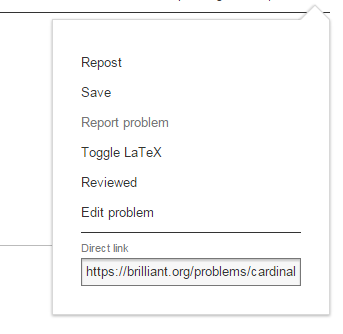Let's integrate
The above equation is true for positive integers , and .
Find the minimum value of .
Bonus: Find the generalization of .
Notation : denotes the factorial notation. For example, .
The answer is 16.
This section requires Javascript.
You are seeing this because something didn't load right. We suggest you, (a) try
refreshing the page, (b) enabling javascript if it is disabled on your browser and,
finally, (c)
loading the
non-javascript version of this page
. We're sorry about the hassle.

I = ∫ 0 ∞ ⌊ e x 6 ⌋ d x We note that k 6 6 = k ⟹ ln k 6 < x ≤ k − 1 6 ⟹ ⌊ e x 6 ⌋ = k = ∫ 0 ln 5 6 5 d x + ∫ ln 5 6 ln 4 6 4 d x + ∫ ln 4 6 ln 3 6 3 d x + ∫ ln 3 6 ln 2 6 2 d x + ∫ ln 2 6 ln 6 1 d x = k = 1 ∑ 5 ∫ ln k + 1 6 ln k 6 k d x = k = 1 ∑ 5 k ( ln k 6 − ln k + 1 6 ) = k = 1 ∑ 5 k ( ln ( k + 1 ) − ln k ) = k = 2 ∑ 6 ( k − 1 ) ln k − k = 1 ∑ 5 ln k = k = 2 ∑ 6 k ln k − k = 1 ∑ 5 ln k − k = 2 ∑ 6 ln k = 6 ln 6 − ln ( 6 ! ) = ln 5 ! 6 5
⟹ A + B + C = 6 + 5 + 5 = 1 6
Generalization: ∫ 0 ∞ ⌊ e x n ⌋ d x = ln ( n − 1 ) ! n n − 1